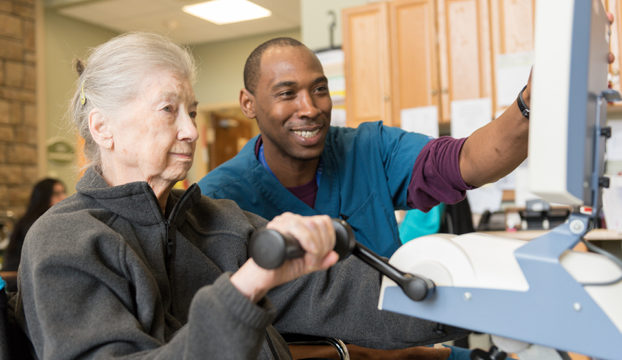The Crucial Effect of Strength Exercise on Improving Recovery and Effectiveness in Sports Recovery
The Crucial Effect of Strength Exercise on Improving Recovery and Effectiveness in Sports Recovery
Blog Article
Resistance conditioning plays a vital part in athletic recovery, assisting athletes heal from traumas and improve their general capabilities. When an athlete gets hurt, their physique needs time to heal. However, during this recovery period, it is crucial to maintain power and flexibility to prevent additional damages. Resistance training can be customized to suit the needs of each individual, focusing on specific muscle groups that may have been impacted by the injury. This targeted method not only aids in rehabilitation but also prepares the individual to return to their activity stronger than previously.
One of the main advantages of strength conditioning in recovery is its ability to enhance muscular power and endurance. When muscles are stronger, they can more effectively stabilize articulations and reduce the risk of re-injury. For instance, an athlete healing from a knee trauma can benefit from workouts that strengthen the thigh muscles and hamstrings. These muscular tissues play a vital role in supporting the knee joint. By incorporating strength training into their rehabilitation plan, athletes can recover their power more effectively and securely.
In addition to building strength, resistance training also enhances flexibility and range of movement. Many injuries can lead to rigidity in the affected area, causing it difficult for individuals to move easily. Strength conditioning exercises often involve extending and elongating the muscular tissues, which can help reestablish flexibility. For instance, adding resistance straps or dumbbells into stretching programs the original source can improve the effectiveness of these workouts. As mobility improves, individuals can execute movements more effectively, which is crucial for optimal capabilities in their activity.
Another important aspect of strength training in athletic recovery is its positive impact on mental well-being. Healing from an trauma can be a challenging and frustrating experience for individuals. Participating in strength training can offer a feeling of achievement and boost confidence. As individuals see gains in their strength and abilities, they may experience more motivated to persist their recovery journey. This mental boost can be just as crucial as the bodily benefits, as a positive attitude can result to better outcomes in rehabilitation.
Finally, resistance training can help individuals move back to their activity more smoothly. Once they have regained their power and mobility, athletes must to rehearse sport-specific movements to guarantee they are ready for competition. Resistance conditioning can be integrated with activity-specific exercises to create a comprehensive rehabilitation plan. This blend allows athletes to not only heal but also enhance their capabilities. By focusing on both rehabilitation and capabilities, strength conditioning becomes an crucial tool in the rehabilitation journey, helping athletes come back to their activity stronger and more durable.